|
|
|
|
|
|
|
|
|
|
|
|
|
|
|
|
|
|
|
|
|
|
|
|
|
|
|
|
|
|
|
|
|
|
|
|
|
|
|
|
|
|
|
|
|
|
|
|
|
|
|
|
|
|
|
|
|
|
|
|
|
|
|
|
|
|
|
|
|
|
|
|
|
|
|
|
|
|
|
|
|
|
|
|
|
|
|
|
|
|
|
|
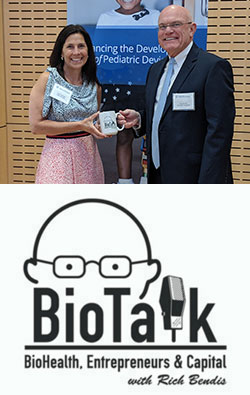
 Recorded at the National Capital Consortium for Pediatric Device Innovation Competition in College Park in front of a live audience!
Recorded at the National Capital Consortium for Pediatric Device Innovation Competition in College Park in front of a live audience!
Laurie Strongin is Founder and CEO of the Washington, DC-based Hope for Henry Foundation which is reinventing the pediatric patient experience in hospitals around the country. Laurie’s work with Hope for Henry and the memoir she published, “Saving Henry,” have placed her at the forefront of supporting the rights of patients and their families and the responsible use of new medical technologies. Laurie’s advocacy has led her to service on the nation’s preeminent science policy and bioethics panels. Her activism has produced op-eds in national newspapers; appearances on television and radio; collaborations with Congressional leadership; and recognition from the White House. An in-demand inspirational speaker, Laurie has been featured as a People magazine “Heroes Among Us” and was the subject of profiles in the USA Today and the Washington Post and on Good Morning America. Laurie serves on the board of directors of the National Marrow Donor Program/Be the Match; on the Advisory Committee to Disney’s “Team of Heroes,” and on the Advisory Committee of the Association of Child Life Professionals. Learn more athttps://hopeforhenry.org/.
Listen now on Google Play bit.ly/2CzdnA9, iTunes, apple.co/2Arsfze, TuneIn bit.ly/2M60Wmx.
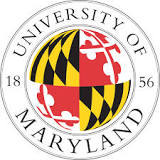

The University of Maryland has opened a 215,600-square-foot computer science facility on its College Park campus.
The university says the Brendan Iribe Center for Computer Science and Engineering will support team-based, interdisciplinary research in virtual and augmented reality, artificial intelligence, robotics, computer vision, algorithms, programming languages and systems.


Venture capital dollars are flooding into biotech, totaling $8.5 billion in 2017 alone. But there’s no one way to fund a startup.


Kilpatrick Townsend & Stockton and GreyB Services released today their findings from The First Annual Kilpatrick Townsend & GreyB Services Patenting Trends Study (Study). The Study provides clear and actionable information that assists decision makers in envisioning the technological future of their respective industries and setting their companies’ strategies over the coming years and decades in an increasingly globalized economy.


The privacy and security of patient data continues to be increasingly important as access to this data increases and threats to this sensitive information continue to grow. At the same time, several new federal health information policies will make electronic health information about individuals more widely available to individuals and their caregivers and health care professionals. Lucia Savage, Former Chief Privacy Officer of HHS Office of the National Coordinator, will provide the opening keynote for the Privacy and Analytics (PANDAS) conference, focusing on innovation that equips privacy teams to effectively navigate the shift that occurs when organizations begin to more frequently utilize consumer tools to deliver healthcare.
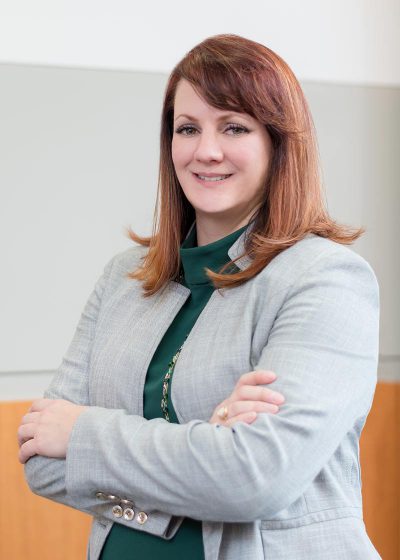
 The 3rd hour of TODAY looks at the Virginia-based biotech company Aperiomics, which says it has technology that could shake up health care and find answers for the millions of people living with chronic and undetected illnesses.
The 3rd hour of TODAY looks at the Virginia-based biotech company Aperiomics, which says it has technology that could shake up health care and find answers for the millions of people living with chronic and undetected illnesses.


Car crashes, battle wounds, and surgeries can leave people with gaping holes in soft tissue that are often too large for their bodies to repair. Now, researchers have developed a nanofiber-reinforced injectable gel that can rebuild missing muscle and connective tissues by serving as a scaffold and recruiting the body’s wound-healing cells. So far, the team has tested the material only in rats and rabbits. But if it performs as well in humans, it could give reconstructive surgeons a fast and easy way to help patients regenerate lost tissues without scarring or deformity.
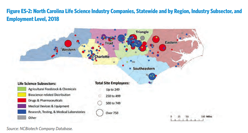

The newly published document, “2018: Evidence and Opportunity: Impact of Life Sciences in North Carolina,” is a fascinating story of transformation for a state that once held the unfortunate reputation as the second-poorest in the nation.
It marks the 10th anniversary of the North Carolina Biotechnology Center’s contract with TEConomy Partners to track and evaluate the state’s life science landscape.
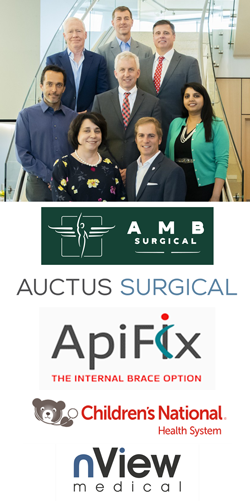
 The National Capital Consortium for Pediatric Device Innovation (NCC-PDI) announced five winners of its “Make Your Medical Device Pitch for Kids!” competition who will each receive $50,000 in grant funding and access to the consortium’s first-of-its-kind “Pediatric Device Innovator Accelerator Program” led by MedTech Innovator. A panel of expert judges from business, healthcare, regulatory and legal sectors selected the winners based on the clinical significance and commercial feasibility of their medical devices for children. The competition focused solely on advancing care in pediatric orthopedics and spine, a sector that the FDA identified as an emerging underserved specialty which lacks innovation.
The National Capital Consortium for Pediatric Device Innovation (NCC-PDI) announced five winners of its “Make Your Medical Device Pitch for Kids!” competition who will each receive $50,000 in grant funding and access to the consortium’s first-of-its-kind “Pediatric Device Innovator Accelerator Program” led by MedTech Innovator. A panel of expert judges from business, healthcare, regulatory and legal sectors selected the winners based on the clinical significance and commercial feasibility of their medical devices for children. The competition focused solely on advancing care in pediatric orthopedics and spine, a sector that the FDA identified as an emerging underserved specialty which lacks innovation.